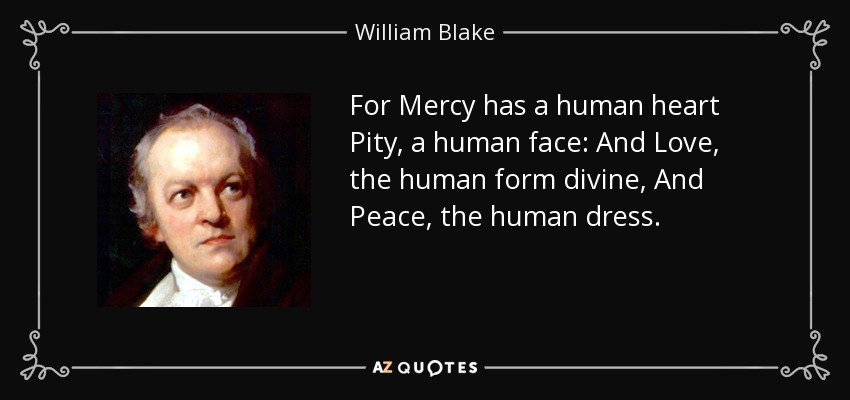Sunday
Few poems better capture for me the idea that we are created in God’s image (Genesis 1:27) than William Blake’s “Divine Image.” In the poem, distinctions collapse between God and humans, just as—at the end—so also collapse distinctions between people of different beliefs and faith systems.
Poet and pastor Malcolm Guite says that Blake’s poem captures the mystery of Christ’s incarnation. By taking on human nature, he says, God “becomes involved in, visits, redeems the whole of humanity, not just the chosen people…”
“And what is more,” the poet adds, “when the fullness of God comes to dwell in the fullness of Christ’s humanity, then that mysterious ‘image of God’ in which all humanity was made is at last restored.”
Heaven on earth, in other words, is people embodying Mercy, Pity, Peace, and Love. Consider memorizing the poem so that, whenever people call upon you to hate others, Blake’s incantatory words will be within you, giving you the strength to resist.
The Divine Image
By William Blake
To Mercy, Pity, Peace, and Love
All pray in their distress;
And to these virtues of delight
Return their thankfulness.
For Mercy, Pity, Peace, and Love
Is God, our father dear,
And Mercy, Pity, Peace, and Love
Is Man, his child and care.
For Mercy has a human heart,
Pity a human face,
And Love, the human form divine,
And Peace, the human dress.
Then every man, of every clime,
That prays in his distress,
Prays to the human form divine,
Love, Mercy, Pity, Peace.
And all must love the human form,
In heathen, Turk, or Jew;
Where Mercy, Love, and Pity dwell
There God is dwelling too.


